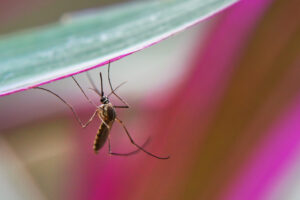Malaria is a serious and potentially fatal disease that can be caused by five species of Plasmodium—P. falciparum, P. vivax, P. malariae, P. ovale, and P. knowlesi. Worldwide approximately 240 million cases of malaria are diagnosed each year of which 95% of cases are in Africa. Locally acquired Anopheles mosquito transmitted malaria has not occurred in the U.S. since 2003 when eight cases of P. vivax were identified in Florida. The U.S. Centers for Disease Control and Prevention (CDC), however, recently issued a health advisory to alert the health network about 5 cases of locally acquired P. vivax infections—four in Florida and one in Texas. Malaria is usually transmitted by the bite from an infected female anopheles mosquito, though it can also be transmitted by sharing needles contaminated with blood, organ transplantation, and blood transfusion. Currently, most travelers to an area with endemic malaria are deferred from donating blood for three months after their return, and the rate of transfusion-transmitted malaria in the U.S. is very rare with a rate of less than one case per one million units of blood transfused. If locally acquired Plasmodium infections continue in the U.S., the transfusion community will need to consider screening donated blood for malaria.
Reference:
CDC Health Advisory. Locally acquired malaria cases identified in the United States. June 26, 2023

